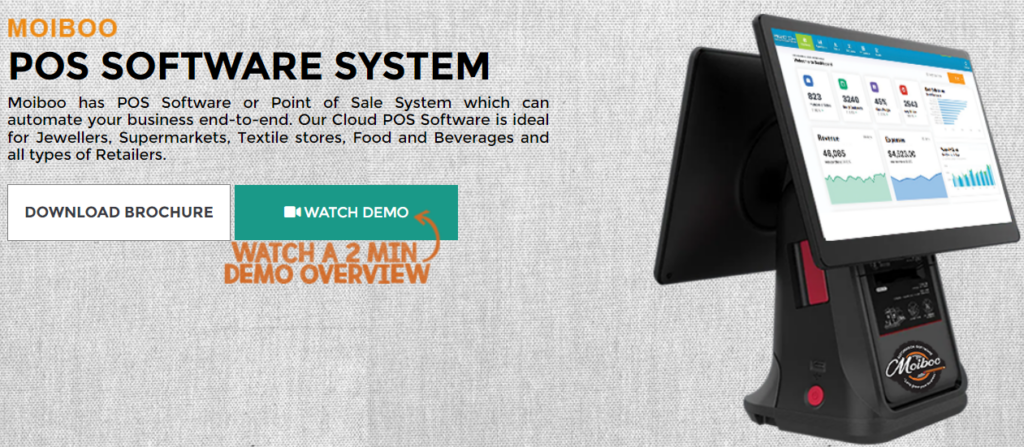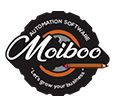POS Software or Point of sale is that point of sale or purchase where the merchant calculates the amount that the customer needs to pay, prepares an invoice, and provides the customer with options to pay.

Table of Contents:
- Introduction to POS Software
- Streamlined Sales and Inventory Management
- Enhanced Customer Experience
- Accurate Reporting and Analytics
- Efficient Employee Management
- Simplified Accounting and Bookkeeping
- Increased Security and Fraud Prevention
- Integration and Scalability
- Conclusion
Introduction to POS Software
In today’s fast-paced business environment, having an efficient and reliable Point of Sale (POS) system is crucial for the success of any retail or hospitality business. A POS system is a software and hardware solution that enables businesses to process sales transactions and manage various aspects of their operations. This blog explores the numerous advantages of implementing a POS system for your business.
Streamlined Sales and Inventory Management
One of the primary benefits of POS software is the automation of sales and inventory management processes. With a POS system, businesses can easily track sales in real-time, monitor stock levels, and automate reordering. This helps to prevent stockouts, reduce overstocking, and ensure that popular items are always available to customers.
Additionally, the system can generate alerts when inventory levels reach a predetermined threshold, enabling timely restocking.
Enhanced Customer Experience
A POS system can greatly improve the customer experience by enabling quick and efficient transactions. With features like barcode scanning and integrated payment processing, customers can enjoy fast and accurate checkouts, reducing waiting times. Furthermore, a POS system allows businesses to create customer profiles, track purchase histories, and implement loyalty programs, fostering personalized and targeted marketing efforts.
Accurate Reporting and Analytics
Another advantage of using a POS system is the ability to generate detailed reports and gain valuable insights into business performance. The system can provide comprehensive sales reports, including information on top-selling products, peak sales periods, and employee performance. These reports enable businesses to make data-driven decisions, identify trends, and optimize their operations for increased profitability.
Efficient Employee Management
POS systems offer features that streamline employee management and improve productivity. Businesses can assign unique login credentials to employees, enabling them to track individual sales and performance. This promotes accountability and allows businesses to reward high-performing employees. Additionally, a POS system can help automate scheduling, manage clock-ins and clock-outs, and generate payroll reports, saving time and reducing administrative overhead.
Simplified Accounting and Bookkeeping
Integrating a POS system with accounting software simplifies the process of managing financial records. A POS system automatically records sales transactions, eliminating the need for manual data entry. This reduces the likelihood of human errors and saves valuable time during the bookkeeping process. By streamlining accounting procedures, businesses can focus on core activities and ensure accurate financial reporting.
Increased Security and Fraud Prevention
Security is a critical aspect of any business operation, and a POS software system can significantly enhance it. Modern POS software systems offer robust security features, such as encrypted payment processing, secure user access, and data backup. These measures protect sensitive customer information and reduce the risk of data breaches. Additionally, a POS system helps prevent employee theft and fraud through detailed transaction logs and audit trails.
Integration and Scalability
POS systems are highly versatile and can integrate with other business tools and systems. Whether it’s integrating with inventory management software, e-commerce platforms, or customer relationship management systems, a POS system offers seamless data flow and eliminates the need for manual data entry. Moreover, a good POS system is scalable, allowing businesses to expand their operations without disrupting their existing infrastructure.
Conclusion
In conclusion, implementing a POS system offers a wide range of advantages for businesses. From streamlined sales and inventory management to enhanced customer experiences and accurate reporting, a POS system is a valuable asset for improving operational efficiency and boosting profitability. By leveraging the power of technology, businesses.

If you are seeking a POS software solution for your business, we highly recommend Moiboo POS software. Our comprehensive Cloud POS Software is designed to automate and streamline various aspects of your business operations.
Whether you run a jewelry store, supermarket, textile shop, food and beverage establishment, or any other type of retail business, Moiboo POS software is an ideal choice. With its user-friendly interface and advanced features, Moiboo POS software will help you manage your business end-to-end efficiently.
You are welcome to request a free demo of our services. Should you have any inquiries or require additional information, please do not hesitate to reach out to us at the following phone number: +65 9895 1817.
FAQS:
Who needs POS software?
POS software is essential for businesses in various industries, including retail, hospitality, food and beverage, healthcare, and many more. Any business that engages in sales transactions with customers can benefit from POS software.
Whether you run a small boutique, a restaurant, a supermarket, or a large chain of stores, POS software helps streamline sales processes, manage inventory, track customer information, generate reports, and facilitate smooth and efficient transactions.
From optimizing inventory management to enhancing customer experiences, POS software is a valuable tool for businesses of all sizes, helping them operate more effectively and maximize profitability.
How does POS work?
A POS (Point of Sale) system works by combining hardware and software to facilitate sales transactions in a business. When a customer selects products or services, the cashier uses the POS software to calculate the total amount due, including taxes and discounts.
The customer then chooses a payment method, and the POS system securely processes the payment, generating a receipt. Simultaneously, the system updates the inventory database, deducting sold items. The data captured during the transaction is stored for generating reports and analytics later.
POS systems can integrate with other tools like accounting software for streamlined financial management. Overall, a POS system streamlines sales, inventory, and financial processes, ensuring efficient operations and a smooth customer experience.
